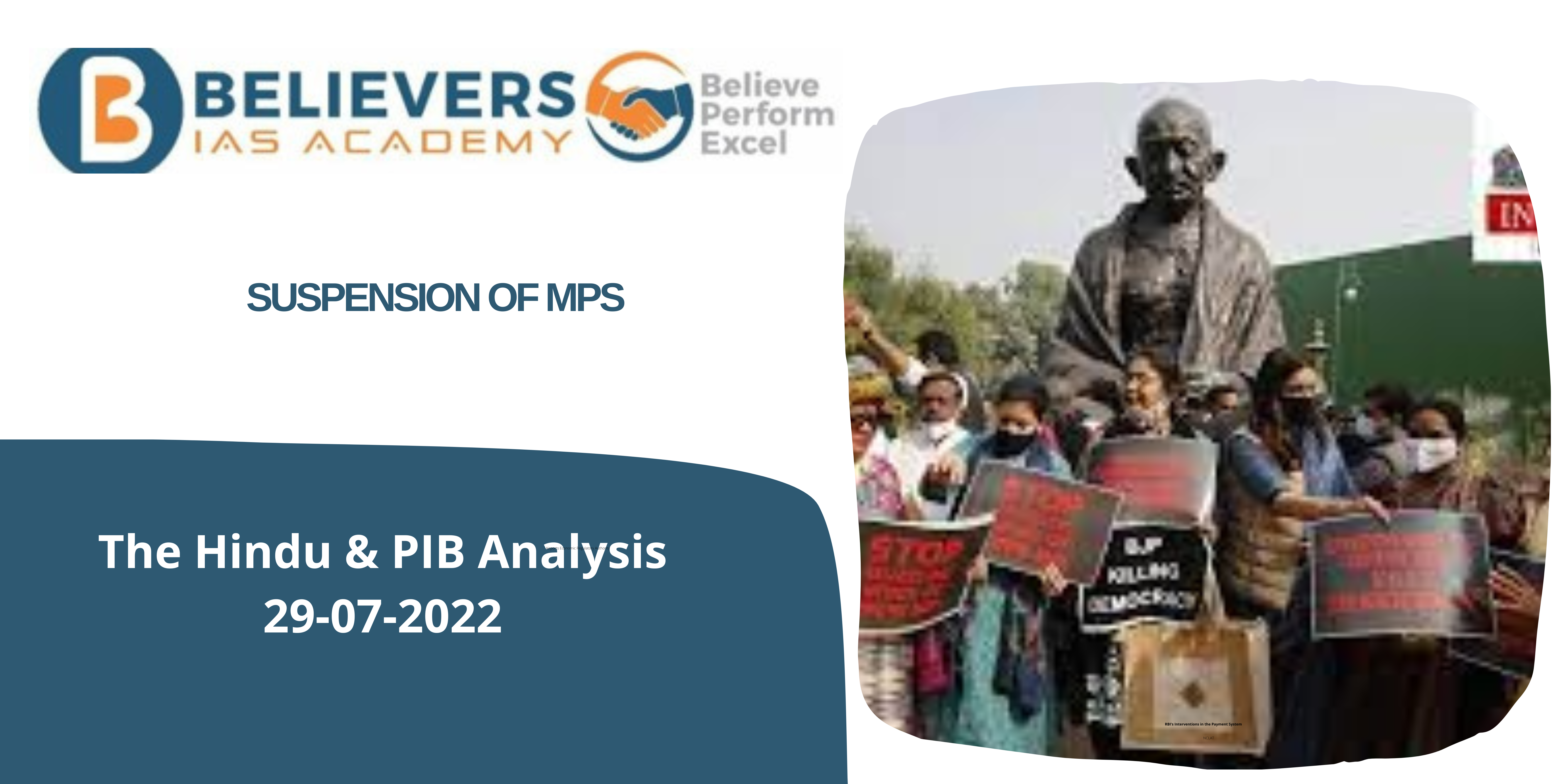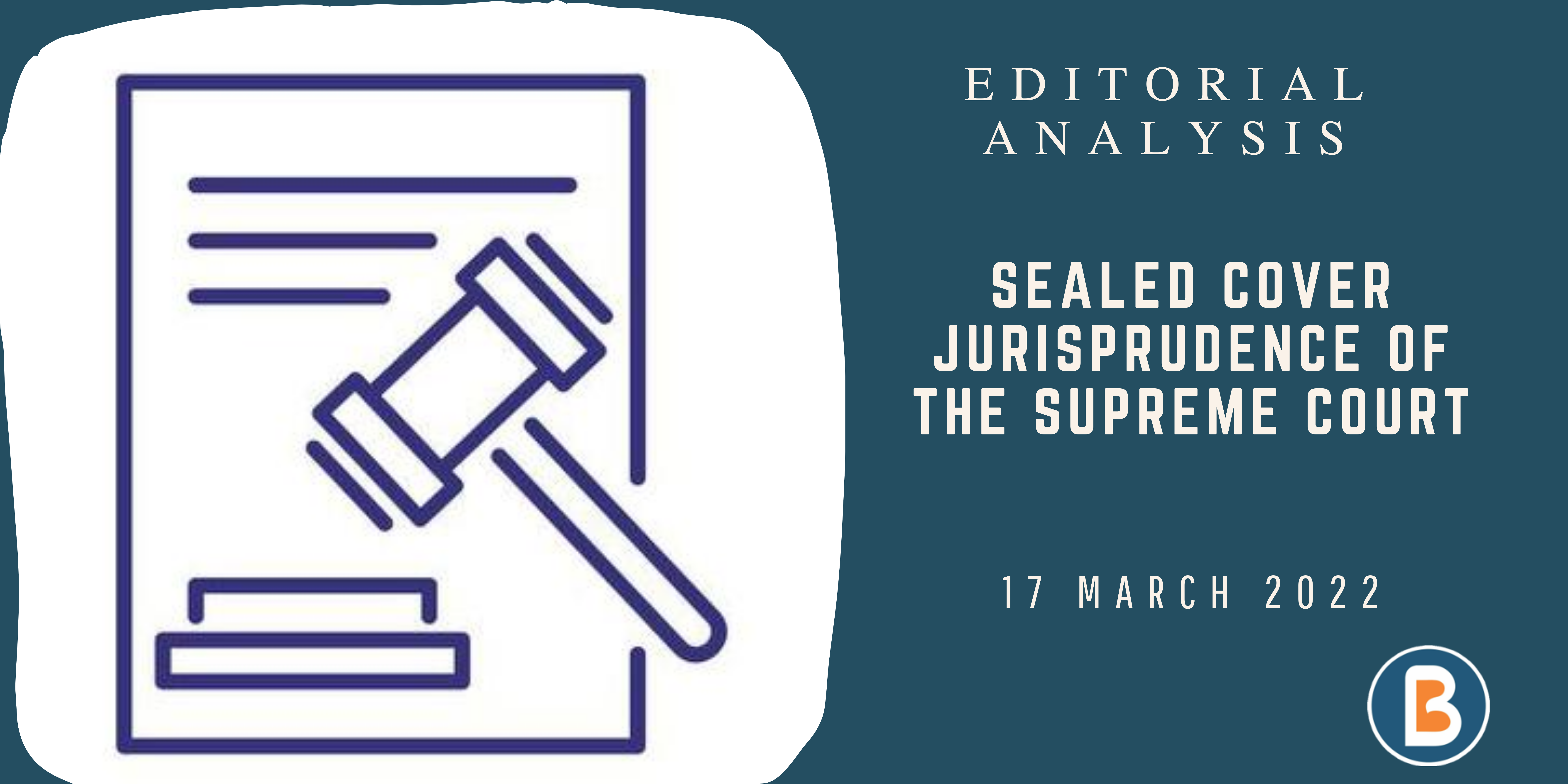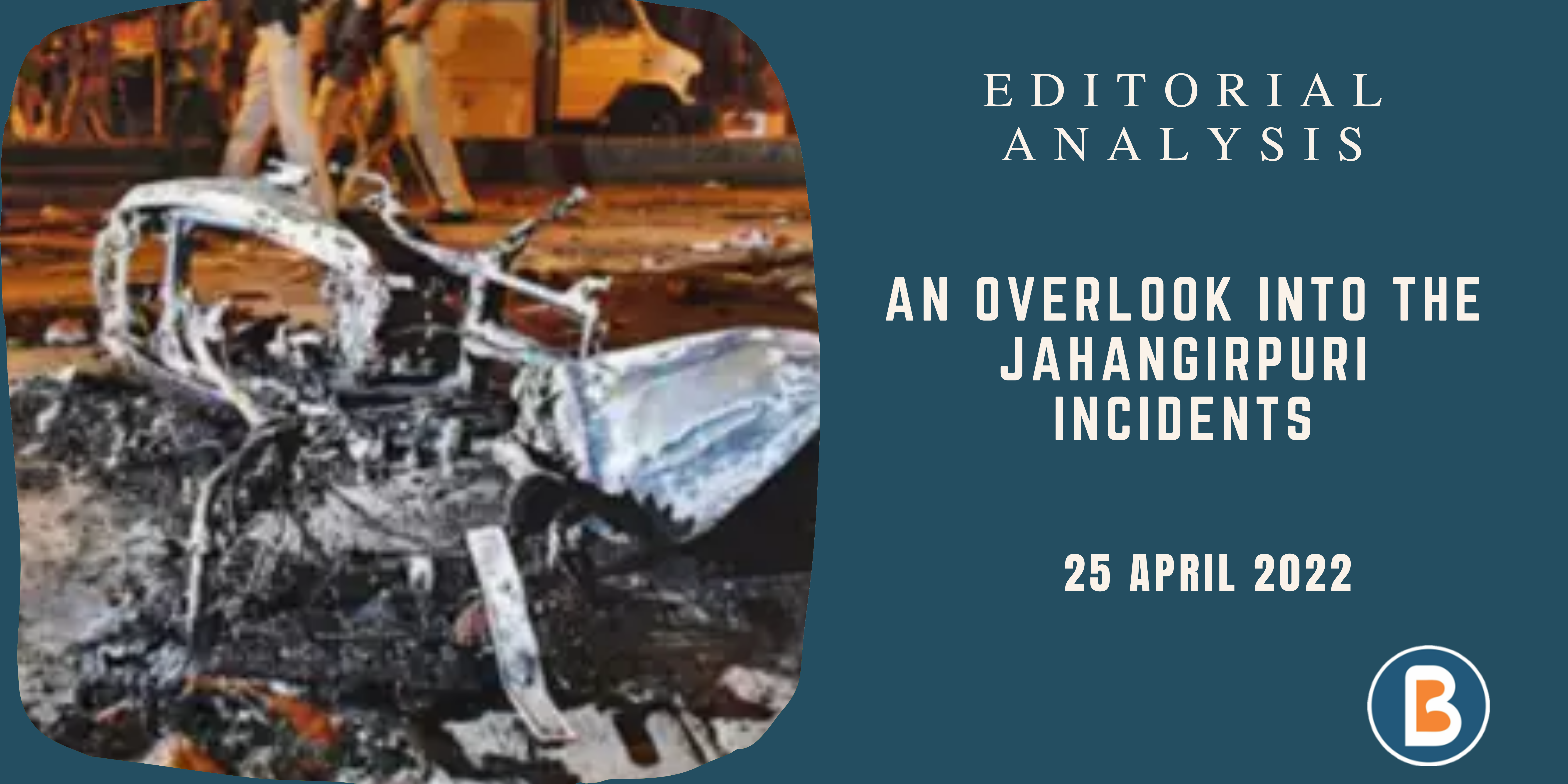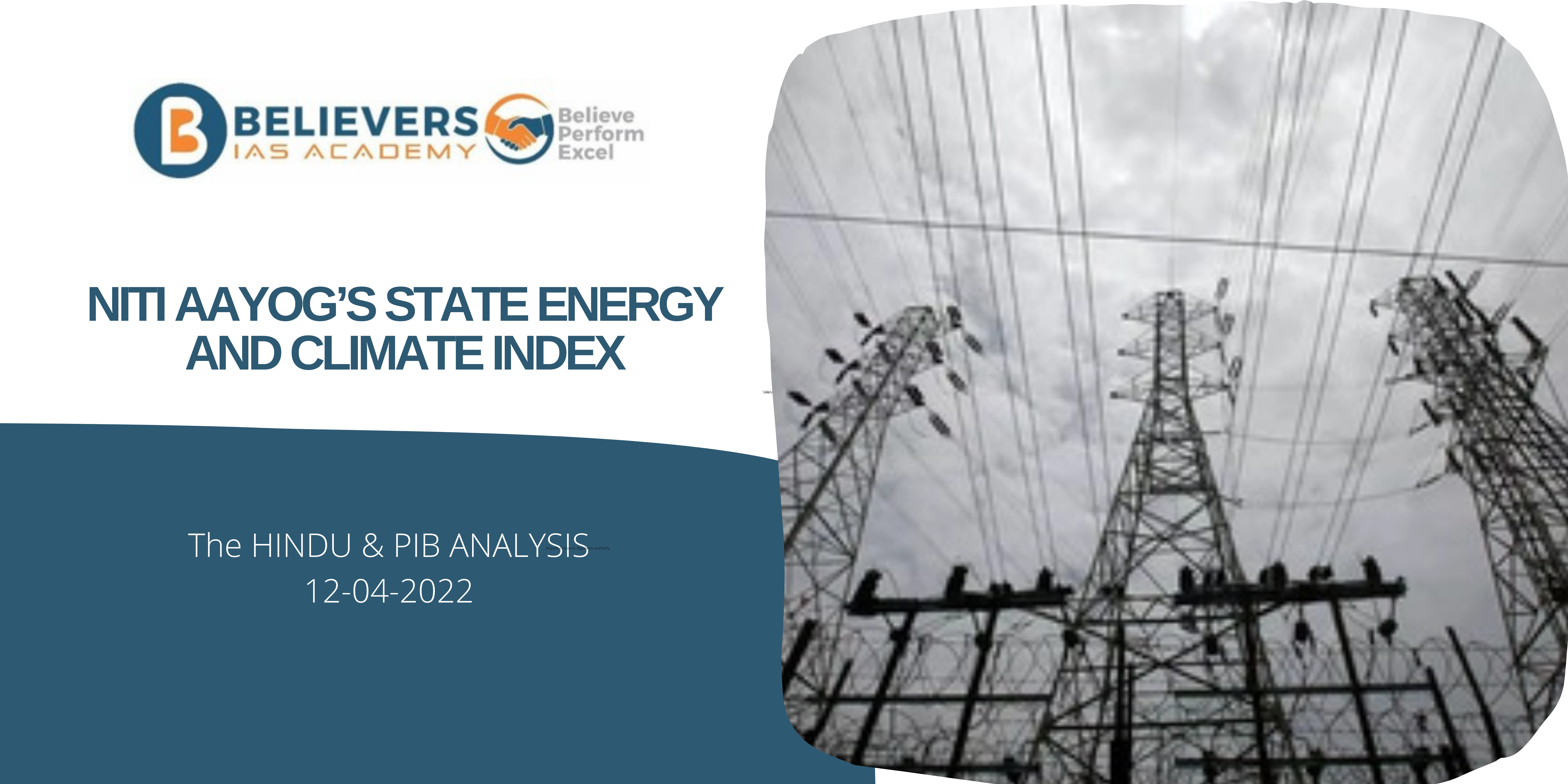Suspension of MPs
Context:
- The two Houses of Parliament have suspended 27 members this week, the most recent of which were two AAP members and an independent Rajya Sabha member on Thursday.
- Along with the independent, the Trinamool Congress, DMK, TRS, CPI, CPI(M), and AAP have all had four of its MPs from the Lok Sabha and the Rajya Sabha suspended.
Background:
- The parliamentary calendar is set by the government, not by Parliament. Therefore, it is up to the government to decide how much time will be given in Parliament for deliberations.
- Additionally, parliamentary procedure prioritises government business above other legislative issues.
- Over the past 70 years, Parliament has not altered its rules in this regard to allow opposition parties a voice in determining the discussion agenda.
- Whether political parties are in the Opposition or the ruling party/coalition determines their perspective on ongoing parliamentary operation. And in 2001, the Lok Sabha changed its rules to give the Speaker more authority to reprimand lawmakers who disturb House business.
Powers to Suspend:
- Since 1952, the procedures for maintaining the smooth operation of Parliament have not altered. First, for any unruly behaviour, the presiding officers have the authority to order an MP to leave the House.
- The presiding officer may “name” the MP if he or she continues to disturb the House. The House then has the option to introduce a motion suspending the MP until the end of the current session.
- The chairs of both Houses have access to these abilities.
- The Lok Sabha revised its rules in 2001, during the Speaker G M C Balayogi’s term, to provide the Speaker more authority to deal with serious and unruly conduct.
- According to the new regulation, the Speaker may “name” a Member of Parliament, who will then be automatically suspended for five days or the remainder of the session.
- Rajya Sabha has not incorporated this provision in its procedures.
Can Judiciary intervene?
- Article 122 of the Constitution says parliamentary proceedings cannot be questioned before a court: “No officer or Member of Parliament in whom powers are vested by or under this Constitution for regulating procedure or the conduct of business, or for maintaining order, in Parliament shall be subject to the jurisdiction of any court in respect of the exercise by him of those powers”.
Source The Hindu




